Tony Russell-Rose
The AI Interface: Designing for the Ideal Machine-Human Experience (Editorial)
Nov 29, 2024Abstract:As artificial intelligence (AI) becomes increasingly embedded in daily life, designing intuitive, trustworthy, and emotionally resonant AI-human interfaces has emerged as a critical challenge. This editorial introduces a Special Issue that explores the psychology of AI experience design, focusing on how interfaces can foster seamless collaboration between humans and machines. Drawing on insights from diverse fields (healthcare, consumer technology, workplace dynamics, and cultural sector), the papers in this collection highlight the complexities of trust, transparency, and emotional sensitivity in human-AI interaction. Key themes include designing AI systems that align with user perceptions and expectations, overcoming resistance through transparency and trust, and framing AI capabilities to reduce user anxiety. By synthesizing findings from eight diverse studies, this editorial underscores the need for AI interfaces to balance efficiency with empathy, addressing both functional and emotional dimensions of user experience. Ultimately, it calls for actionable frameworks to bridge research and practice, ensuring that AI systems enhance human lives through thoughtful, human-centered design.
Crisis talk: analysis of the public debate around the energy crisis and cost of living
Feb 28, 2024Abstract:A prominent media topic in the UK in the early 2020s is the energy crisis affecting the UK and most of Europe. It brings into a single public debate issues of energy dependency and sustainability, fair distribution of economic burdens and cost of living, as well as climate change, risk, and sustainability. In this paper, we investigate the public discourse around the energy crisis and cost of living to identify how these pivotal and contradictory issues are reconciled in this debate and to identify which social actors are involved and the role they play. We analyse a document corpus retrieved from UK newspapers from January 2014 to March 2023. We apply a variety of natural language processing and data visualisation techniques to identify key topics, novel trends, critical social actors, and the role they play in the debate, along with the sentiment associated with those actors and topics. We combine automated techniques with manual discourse analysis to explore and validate the insights revealed in this study. The findings verify the utility of these techniques by providing a flexible and scalable pipeline for discourse analysis and providing critical insights for cost of living - energy crisis nexus research.
Think outside the search box: A comparative study of visual and form-based query builders
May 09, 2022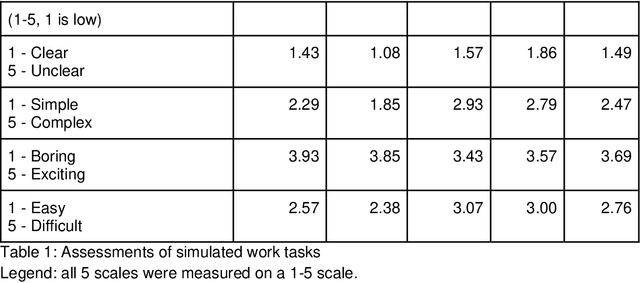


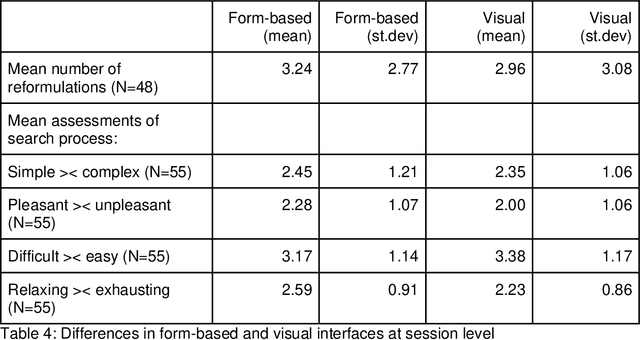
Abstract:Knowledge workers such as healthcare information professionals, legal researchers, and librarians need to create and execute search strategies that are comprehensive, transparent, and reproducible. The traditional solution is to use proprietary query building tools provided by literature database vendors. In the majority of cases, these query builders are designed using a form-based paradigm that requires the user to enter keywords and ontology terms on a line-by-line basis and then combine them using Boolean operators. However, recent years have witnessed significant changes in human-computer interaction technologies and users can now engage with online information systems using a variety of novel data visualisation techniques. In this paper, we evaluate a new approach to query building in which users express concepts as objects on a visual canvas and compare this with traditional form-based query building in a lab-based user study. The results demonstrate the potential of visual interfaces to mitigate some of the shortcomings associated with form-based interfaces and encourage more exploratory search behaviour. They also demonstrate the value of having a temporary 'scratch' space in query formulation. In addition, the findings highlight an ongoing need for transparency and reproducibility in professional search and raise further questions around how these properties may best be supported.
Search Strategy Formulation for Systematic Reviews: issues, challenges and opportunities
Dec 17, 2021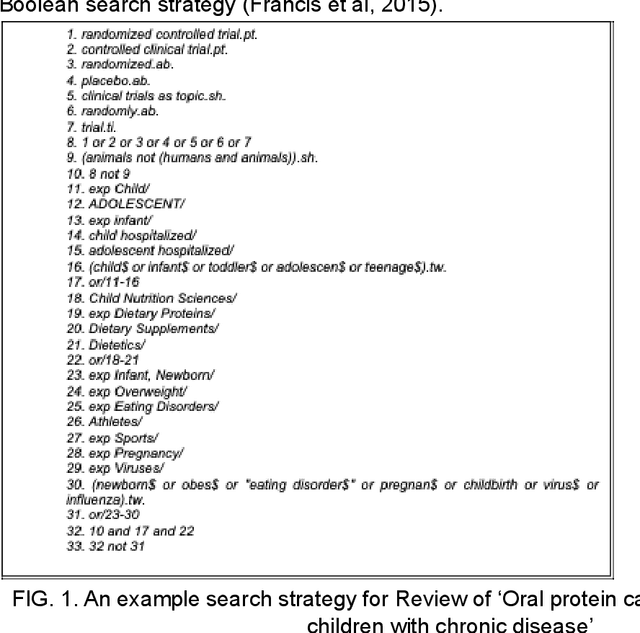

Abstract:Systematic literature reviews play a vital role in identifying the best available evidence for health and social care policy. The resources required to produce systematic reviews can be significant, and a key to the success of any review is the search strategy used to identify relevant literature. However, the methods used to construct search strategies can be complex, time consuming, resource intensive and error prone. In this review, we examine the state of the art in resolving complex structured information needs, focusing primarily on the healthcare context. We analyse the literature to identify key challenges and issues and explore appropriate solutions and workarounds. From this analysis we propose a way forward to facilitate trust and transparency and to aid explainability, reproducibility and replicability through a set of key design principles for tools to support the development of search strategies in systematic literature reviews.
Building a Legal Dialogue System: Development Process, Challenges and Opportunities
Sep 01, 2021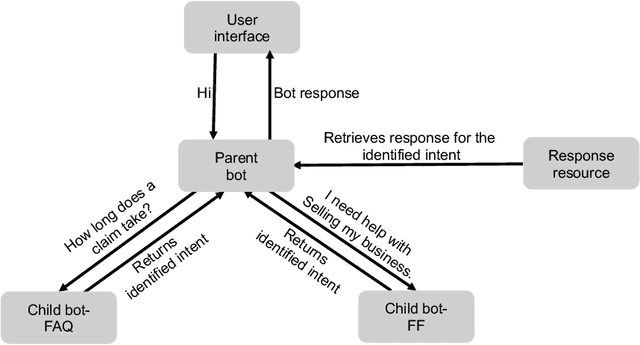

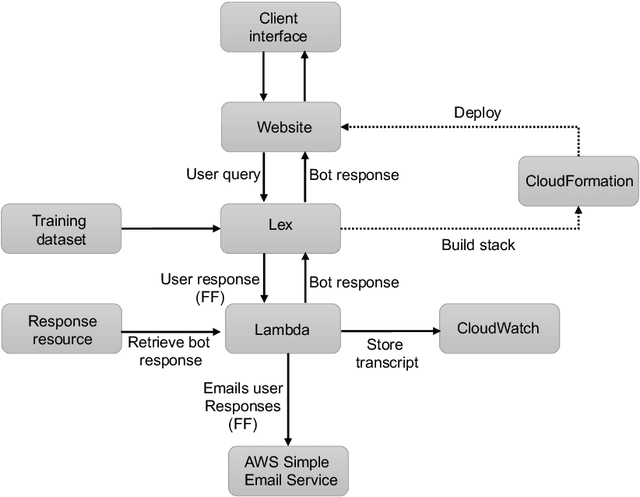
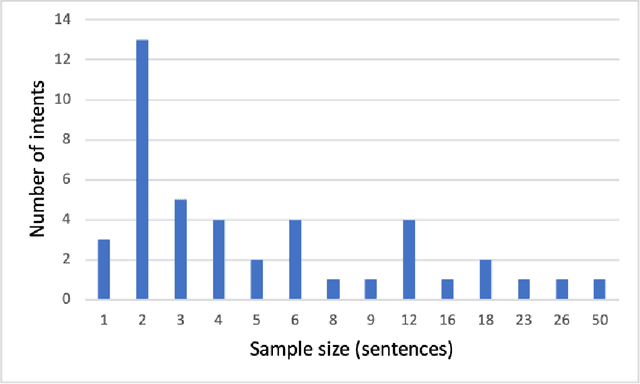
Abstract:This paper presents key principles and solutions to the challenges faced in designing a domain-specific conversational agent for the legal domain. It includes issues of scope, platform, architecture and preparation of input data. It provides functionality in answering user queries and recording user information including contact details and case-related information. It utilises deep learning technology built upon Amazon Web Services (AWS) LEX in combination with AWS Lambda. Due to lack of publicly available data, we identified two methods including crowdsourcing experiments and archived enquiries to develop a number of linguistic resources. This includes a training dataset, set of predetermined responses for the conversational agent, a set of regression test cases and a further conversation test set. We propose a hierarchical bot structure that facilitates multi-level delegation and report model accuracy on the regression test set. Additionally, we highlight features that are added to the bot to improve the conversation flow and overall user experience.
Interactive query expansion for professional search applications
Jun 25, 2021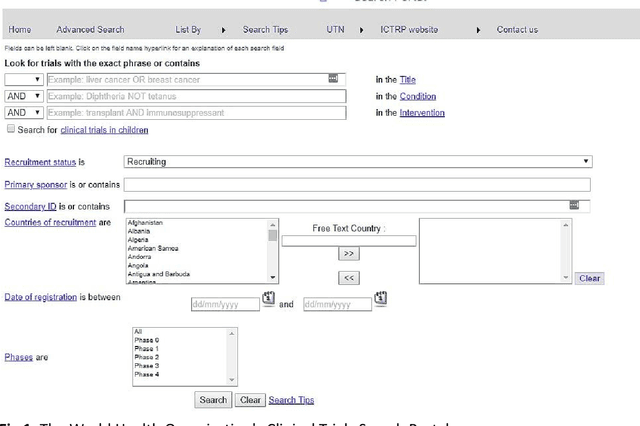

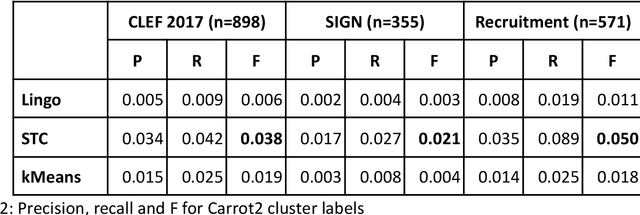
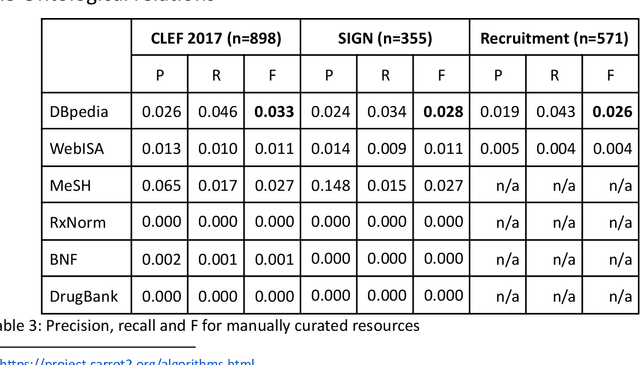
Abstract:Knowledge workers (such as healthcare information professionals, patent agents and recruitment professionals) undertake work tasks where search forms a core part of their duties. In these instances, the search task is often complex and time-consuming and requires specialist expert knowledge to formulate accurate search strategies. Interactive features such as query expansion can play a key role in supporting these tasks. However, generating query suggestions within a professional search context requires that consideration be given to the specialist, structured nature of the search strategies they employ. In this paper, we investigate a variety of query expansion methods applied to a collection of Boolean search strategies used in a variety of real-world professional search tasks. The results demonstrate the utility of context-free distributional language models and the value of using linguistic cues such as ngram order to optimise the balance between precision and recall.
 Add to Chrome
Add to Chrome Add to Firefox
Add to Firefox Add to Edge
Add to Edge